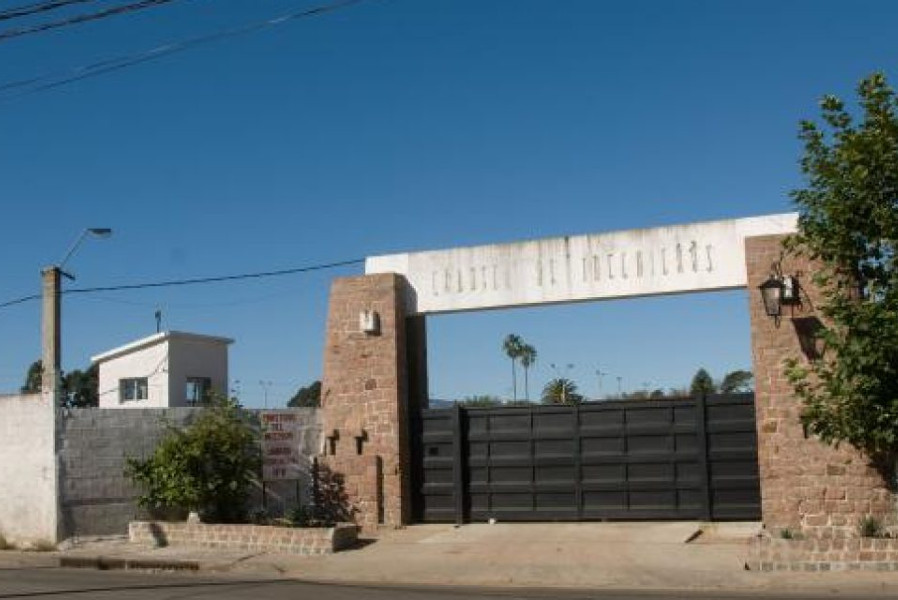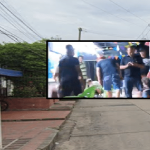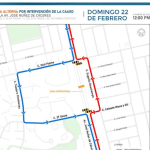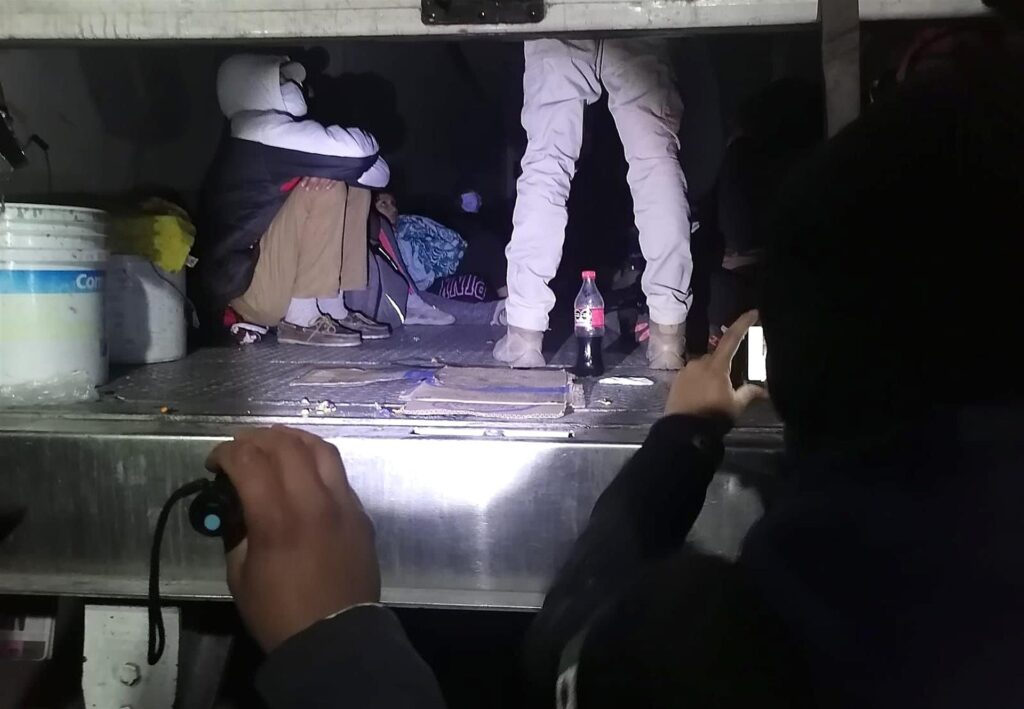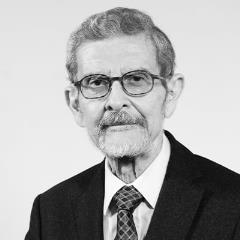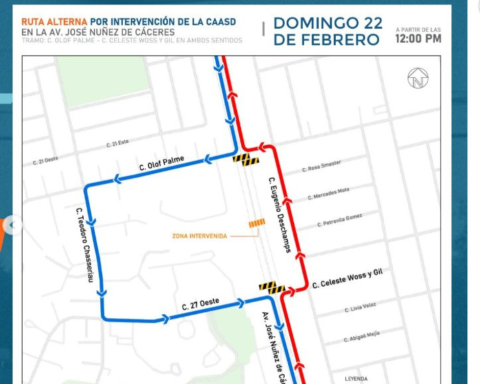The bill promoted by Cabildo Abierto so that the prisoners of Domingo Arenas, perpetrators of crimes against humanity (against all humanity) in Uruguay, leave it for house arrest, was rejected by 25 jurists and rights specialists humans from 12 countries.
The letter of international jurists
We have become aware of the letter sent by five UN rapporteurs to the Uruguayan government on the bill that is being studied by the Senate and that provides for mandatory house arrest for soldiers, police officers and civilians over 65 years of age responsible for crimes against humanity, torture, enforced disappearances and theft of children, and who have already been sentenced to
prison or are likely to be.
This bill was rejected by the Uruguayan Prison Parliamentary Commissioner. As indicated in the joint communication of the UN special procedures of November 16, 2021, it is incompatible with Uruguay’s international human rights obligations. It does not take into account the limits of international law for the granting of amnesties, pardons, sentence reductions, benefits in the execution of the sentence or other similar measures granted to those responsible for serious violations of human rights and crimes against humanity.
This bill is contrary to international law because of its general, automatic and permanent nature, but also because the measure is neither necessary nor proportionate to the seriousness of the crimes for which these people have been convicted. For these reasons, it constitutes a factor of impunity for serious violations of human rights and crimes against humanity.
Presented by the Cabildo Abierto party, created by former soldiers who continue to defend the dictatorship, this project has caused strong emotion among the victims of the dictatorship and the families of the disappeared. Given the cry of alarm from all Uruguayan human rights organizations and the massive demonstration on December 9 in Montevideo, we ask the President of the Republic, Luis Alberto Lacalle, and the Uruguayan senators and deputies not to support the mandatory house arrest law for those responsible for serious violations of human rights, in particular crimes against humanity, torture, forced disappearance and theft of children.
They sign:
– Paulo Abrao
Jurist and Professor Visiting Scholar at Brown University, Executive Secretary of Inter-American Human
Rights Commission (2016-2020), Executive Secretary Mercosur’s Human Rights Institute (2015-2016),
Brazil’s National Secretary of Justice (2011-2014), Senior Advisor Washington Brazil Office and Article19.
(Brazil)
– Martin Almada
Lawyer. Discoverer of the archives of the Paraguayan dictatorship and the Condor Plan. Alternative Nobel Prize
2002 (Paraguayan)
– Jose L. Almanzar
Lawyer, specialist in Human Rights, Fundamental Rights and International Criminal Law.
Rapporteur at the 46th regular session of the General Assembly of the Organization of States
Americans (OAS), (Dominican Republic).
– Magalie Besse,
Jurist, director of the Institut Francophone pour la Justice et la Démocratie – IFJD (Institut Louis Joinet)
(France)
– William Bourdon
Lawyer of the Paris Bar Association and the International Criminal Court, former Secretary General of the
Federation Internationale des Droits de l’Homme (FIDH) (France)
– Jo-Marie Burt
Associate Professor, Schar School of Policy and Government, George Mason University. Senior Fellow,
WOLA: Advocacy for Human Rights in the Americas (USA)
– Elisenda Calvet Martinez
Professor of Public International Law at the University of Barcelona (Spain)
– Gloria Cano Legua
Lawyer. Executive Director of the Association for Human Rights (Aprodeh) (Peru)
– Paul De Greiff
Senior Fellow and Director, Prevention Project Director, Transitional Justice Program Center for Human
Rights and Global Justice, School of Law, New York University and Rapporteur, UN HRC Experts’ Group
on Prevention (2019-2020), former UN Special Rapporteur for the promotion of truth, justice, reparation and
guarantees (Colombia)
– Anderson Dirocie
Lawyer, specialist in Public International Law, Human Rights and International Criminal Law.
Former Secretary General of the Latin American Council of Scholars of International and Comparative Law,
Dominican Republic chapter (COLADIC-RD) (Dominican Republic)
– Mustapha El Manouzi,
Avocat, President of the Moroccan Center for Democratie and Security (Maroc)
– Mireille Fanon-Mendes France,
President of the Fondation Frantz Fanon, EX UN Expert, Working group on People African Descent, Human
Rights Council (France)
– Gabriela Fried Amilivia
Professor Department of Sociology and Latin American Studies Program- College of Natural and Social
Sciences – California State University Los Angeles (CSULA) (USA)
– Carlos G. Guerrero Orozco
Lawyer and human rights defender. Co-founder of Human Rights and Mexican Strategic Litigation
(DLM) (Mexico)
– Aziz Idamine
Professor of Political Science, Secretary General of the Center International des droits et libertés, Zurich (Suisse)
– Viviana Krsticevic
Executive Director | Executive Director/ Center for Justice and International Law | Center for Justice
and International Law | Center for Justice and International Law (CEJIL) (USA)
– Jean-Pierre Massias
President of the Institut Francophone pour la Justice et la Démocratie – IFJD (Institut Louis Joinet), Co-
founder and Co-president of l’Association Francophone de Justice transitionnelle (France)
– Juan Mendez
Professor at the Washington School of Law of the American University and at the International Center for
Transitional Justice, former president of the Inter-American Commission on Human Rights and former rapporteur of the
UN Against Torture (Argentina)
– Naomi Roht-Arriaza
Distinguished Professor of Law (emeritus), University of California, Hastings Law (USA)
– Kim Reufflet
Magistrate, Counselor at the Court of Appeal of Angers, President of the Syndicat de la Magistrature
(France)
– Malik Salemkour
Jurist. President of the Ligue des droits de l’Homme (France)
– Adriana Schnyder
Researcher associated with the FNS project Right to Truth, Truth(s) through Rights: Mass Crimes Impunity and
Transitional Justice- University of Geneva-Faculty of Law (Switzerland)
– Jeanne Solal
Jurist in international law, coordinator of the secretariat of the FEMED (Fédération
Euromediterranéenne against Disparitions Forces) (France)
– Philippe Texier
Judge, former member of the French Court of Cassation, member of FIDH and the Permanent Court
of Peoples (France)
– Sophie Thonon,
Lawyer of the Paris Bar Association, President of France Amérique Latine (France)
